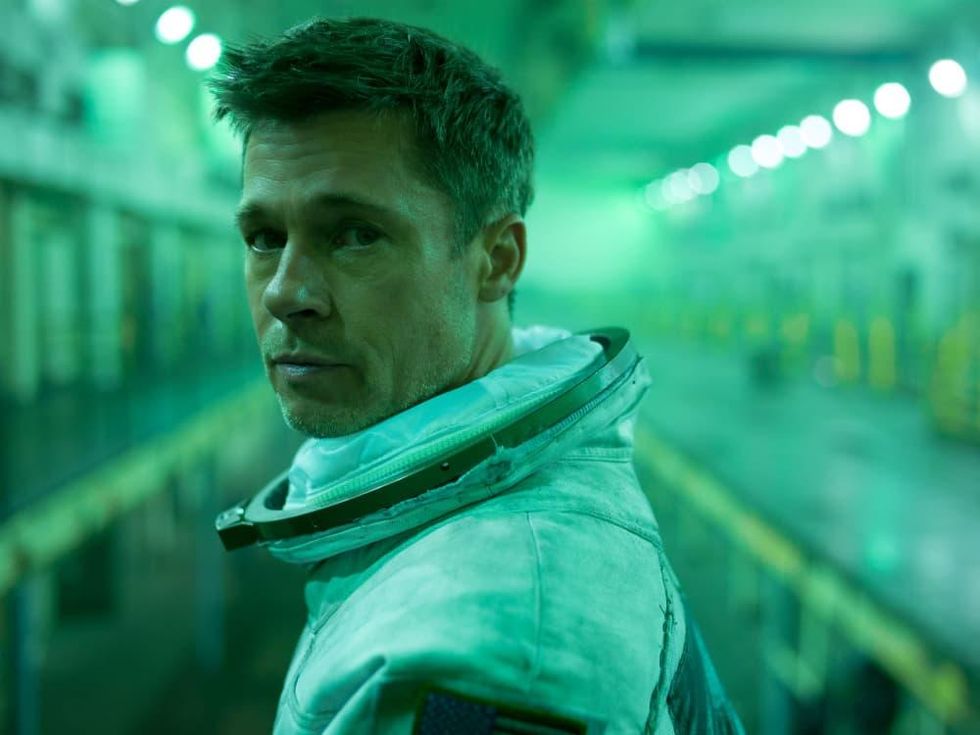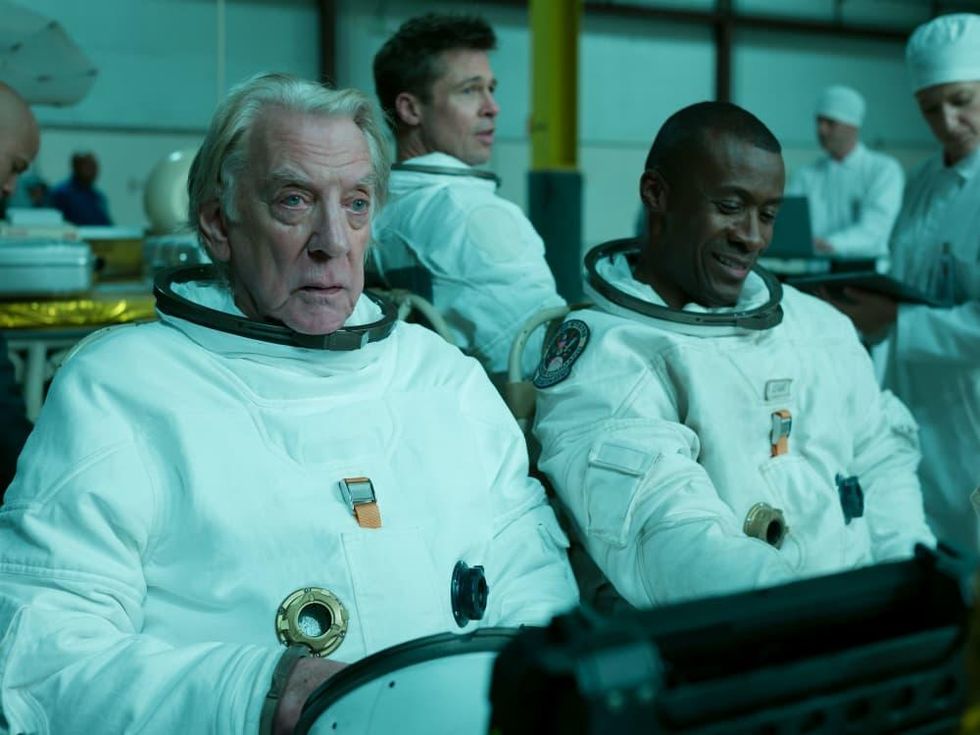Movie Review
Brad Pitt soars to the moon and beyond in extraordinary Ad Astra
Movies set in outer space usually fall in one of two camps: Historical dramas that show real people and spaceships of the past, or sci-fi extravaganzas that deal in technology far outside what has actually been invented. The beauty of Ad Astra — Latin for “to the stars” — is that it’s set close enough in the future to contain familiar elements, but far enough out that the world has advanced way beyond what we now know.
Major Roy McBride (Brad Pitt) is a level-headed astronaut who knows how to keep his calm in even the most dire situations. His emotional detachedness, however, alienates him from those close to him, including his wife, Eve (Liv Tyler). Roy’s father, Clifford McBride (Tommy Lee Jones), was sent on a mission to Neptune to try to find signs of alien life 30 years earlier. When it’s discovered that Clifford is not only still alive but may be causing electrical disturbances that threaten Earth, Roy is sent on a mission to try to stop him.
Directed by James Gray and written by Gray and Ethan Gross, the film immerses the audience in a world that could plausibly be what we’ll face in 20 to 30 years. The moon has not only been colonized, but it contains all the creature comforts of Earth, as well as factions fighting over land. Space travel has advanced to the point that a trip to the moon takes a few hours, Mars a few days, but the ships themselves appear to be just a step or two past those currently being used.
Instead of getting bogged down in the details of how humans' lives have changed, the filmmakers decide to just drop hints along the way, giving just a little extra flavor to the story. They also include some truly shocking scenes that come at just the right moment in a film that’s mostly concerned with the insular life of Roy.
As any good space movie must in this day and age, Ad Astra gives a breathtaking showcase for the beauty of space. There are stops at or fly-bys of every planet from here to Neptune, and each is more gorgeous than the last. The visuals will likely pop on any movie screen, but they truly come to life when viewed on an extra-large screen like IMAX.
The main thrust of the plot is Roy’s fraught relationship with Clifford, who prioritized his career over his family when he left for Neptune. If you’ve had your fill of characters with daddy issues, Ad Astra will likely not be for you. However, Gray and Gross also know that when you have actors as good as Pitt and Jones, they are able to overcome even the most timeworn devices.
Between this and Once Upon a Time… in Hollywood, Pitt is having a hell of a year. With his bevy of producing credits, his acting has been put on the back burner in recent years. But when he’s at his best, as he’s been in these two films, there are few who compare to him. Jones, Tyler, Donald Sutherland, Ruth Negga, and more are all good in limited appearances, but this is Pitt’s film through and through.
Ad Astra is an extraordinary film that contains a vision for the future that’s both appealing and cautionary, as well as a technical wizardry that makes our solar system feel reachable and wondrous at the same time.




